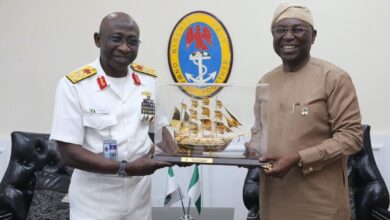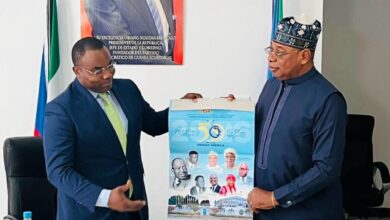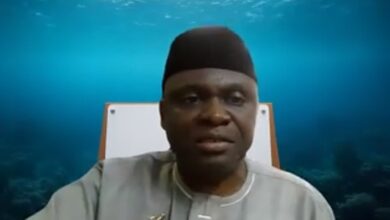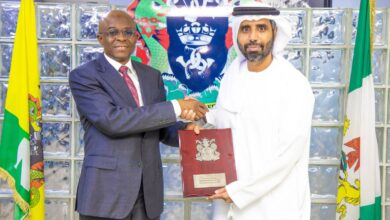Maritime Stakeholders Set Agenda For Effective, Sustainable, Viable Port Community System, Endorse Collaboration
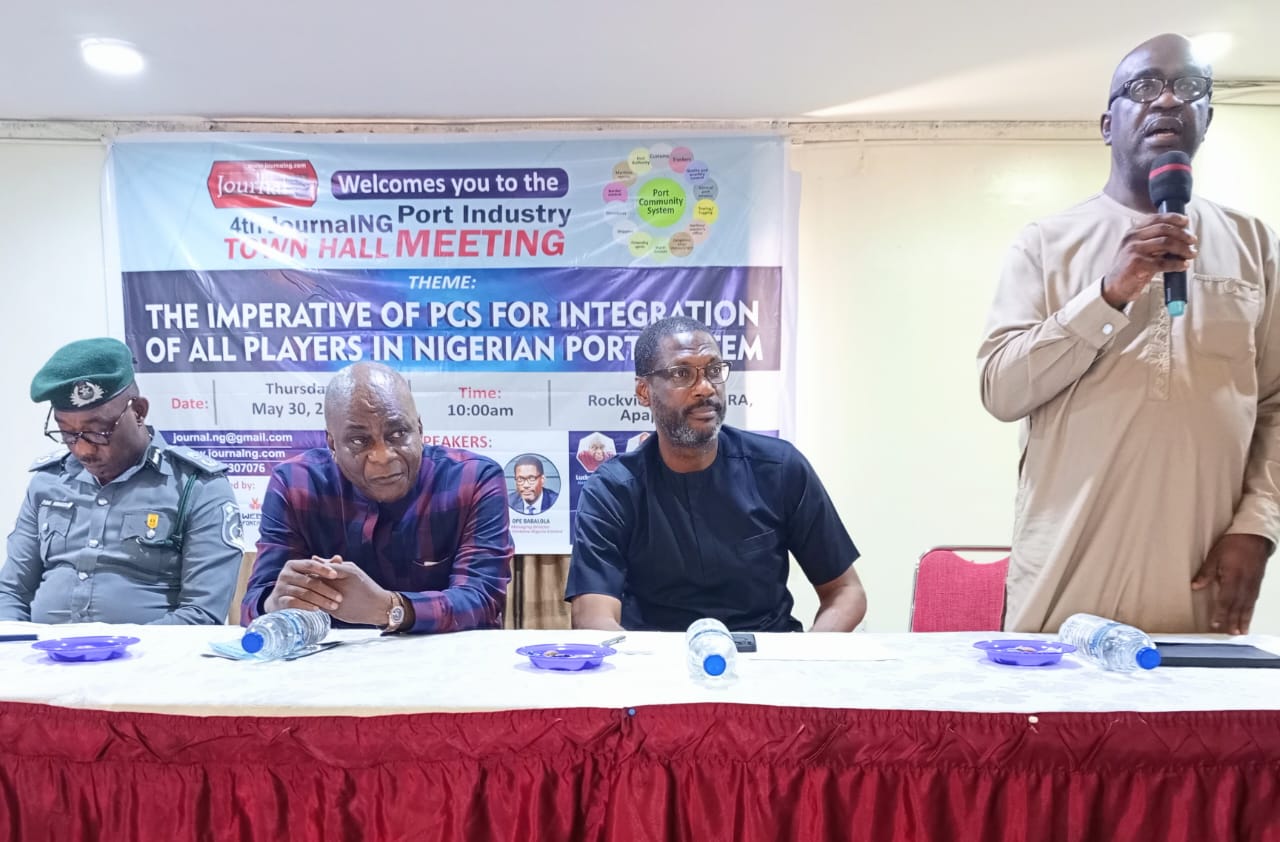
By Edu Abade
Ahead of its full commencement in 2025 as stipulated by the International Maritime Organization (IMO), stakeholders in Nigeria’s maritime sector, yesterday, brainstormed on the best ways to achieve an effective, efficient, sustainable and viable Port Community System (PCS) for robust and profitable trade with other countries.
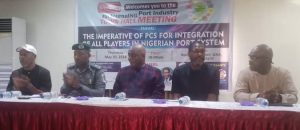 They stressed that to achieve a robust port community system that would guarantee maximum interactions between systems used by port authorities, the Customs Service and terminal operators, among other partners for data exchange and logistics through billing and payment, there was the need for greater collaboration among industry players.
They stressed that to achieve a robust port community system that would guarantee maximum interactions between systems used by port authorities, the Customs Service and terminal operators, among other partners for data exchange and logistics through billing and payment, there was the need for greater collaboration among industry players.
This was the submission of experts and stakeholders at the fourth JournalNG Port Industry Town Hall Meeting with the theme: The Imperative of PCS For Integration of All Players in Nigerian Port System, which was attended by representatives of the Nigerian Port Authority (NPA), Nigerian Customs Service (NCS), Webb Fontaine Nigeria Limited, licensed customs agents, freight forwarders and other industry stakeholders.
In his opening remarks, publisher of journalNG, Ismail Aniemu, stated that the town hall meeting was aimed at setting an agenda for building a sustainable and viable port community system in the country’s maritime sector, as well as create awareness on a more effective PCS in Nigeria, especially as the IMO 2025 date for its commencement and full implementation draws nearer.
Comptroller-General of Customs (CGC), Adewale Adeniyi, who delivered a paper on Enhancing Integration and Efficiency in Nigeria Port Operations Through the Nigeria Customs Service, said policy thrusts of the Federal Government cannot achieve much without collaboration, exchange of ideas and proper implementation.
Adeniyi, who was represented by the Customs Area Controller (CAC) of Tin Can Island Port Command, Comptroller Dera Nnadi, canvassed the inclusion of junior operational officers in conferences such as this in order to maintain a steady succession plan in critical areas of operations to avoid future gaps.
Similarly, Adeniyi, who said an effective port community system will not be achieved in a port environment steeped in disunity and conflicts, which often arise from misunderstandings among critical stakeholders, stressed that some challenges within the PCS and the application of innovative trends at ports are linked to confused tactical officials of participating organizations, especially amongst security agencies. “Capacity building and sensitization should also include the officials at the rank and file. You would find that PCS is well understood by the elite operators and officers; but at the tactical level there isn’t this high-level understanding. This confusion leads to conflicts between these security agencies and operators”
Adeniyi also lamented what he described as poor culture in data collation, noting that the historical inadequacies of policy making and planning have been results of incomprehensive data management in Nigeria.
He commended the Federal Government for approving the National Single Window domiciled with the Federal Inland Revenue Service, adding that the Customs NICIS II system which is propelled by stakeholders, awaits linkage and connectivity by more players in the port industry.
On his part, Managing Director of NPA, Mohammed Bello-Koko, who was represented by the General Manager, Information and Communication Technology (ICT), described the PCS as a single virtual community for critical stakeholders to engage in data sharing for more effective operations in the port system.
In his words: “It is not creating an electronic solution to services, it is simply a process enabled by ICT. PCS has been around before the single window, essentially they are almost the same thing. So it is just to share data and information in terms of vessel arrivals, vessel release, truck call-up system, and general cargo operation.
“The PCS however has more information traffic than the single window. PCS is about change, about business trust, about collaboration in information sharing,”
President, National Council of Managing Director of Licensed Customs Agents (NCMDLCA), Lucky Amiwero, who chaired the event, lamented that system interconnectivity and information portals are operating as silos through multiple windows.
He, however, commended the journalNG team for giving port stakeholders an opportunity to highlight some of the core challenges in the maritime sector while brainstorming on possible solutions.
Also in his intervention, Managing Director of Webb Fontaine Nigeria Limited, Ope Babalola, who delivered a paper on Port Community System, disclosed that the company has begun moves to partner Starlink owned by Elon Musk for increased port efficiency through using faster and reliable internet connectivity, adding that efforts are on to improve on port users experience with the Nigeria Customs Service server.
He maintained that Webb Fontaine enjoys a cordial and robust relationship with the NCS and has always been committed in working for the success of the customs through revenue collection and prevention of losses, noting that President Bola Tinubu’s move to establish a National Single Window (NSW) is a laudable step that will benefit the country in several ways.
Babalola charged stakeholders to support the PCS initiative to further boost port operations, stressing that the journalNG’s town hall meeting that will aid trade facilitation and seamless cargo clearance, should be held regularly to create more awareness about what it’s all about.
A high point of the event was the presentation of awards to industry players including Adeniyi, Bello-Koko, Amiwero and Secretary-General of MOWCA, Dr. Paul Adalikwu, among others for their contributions to an improved maritime industry over the years.






